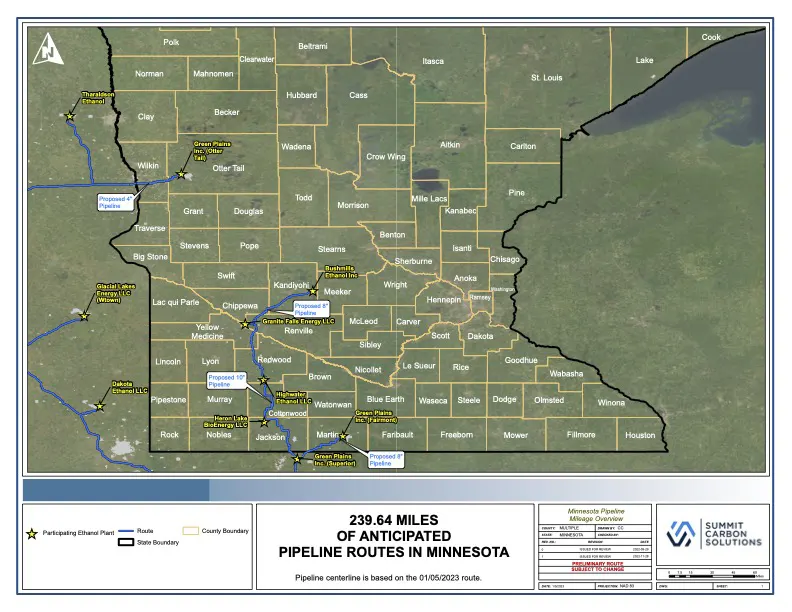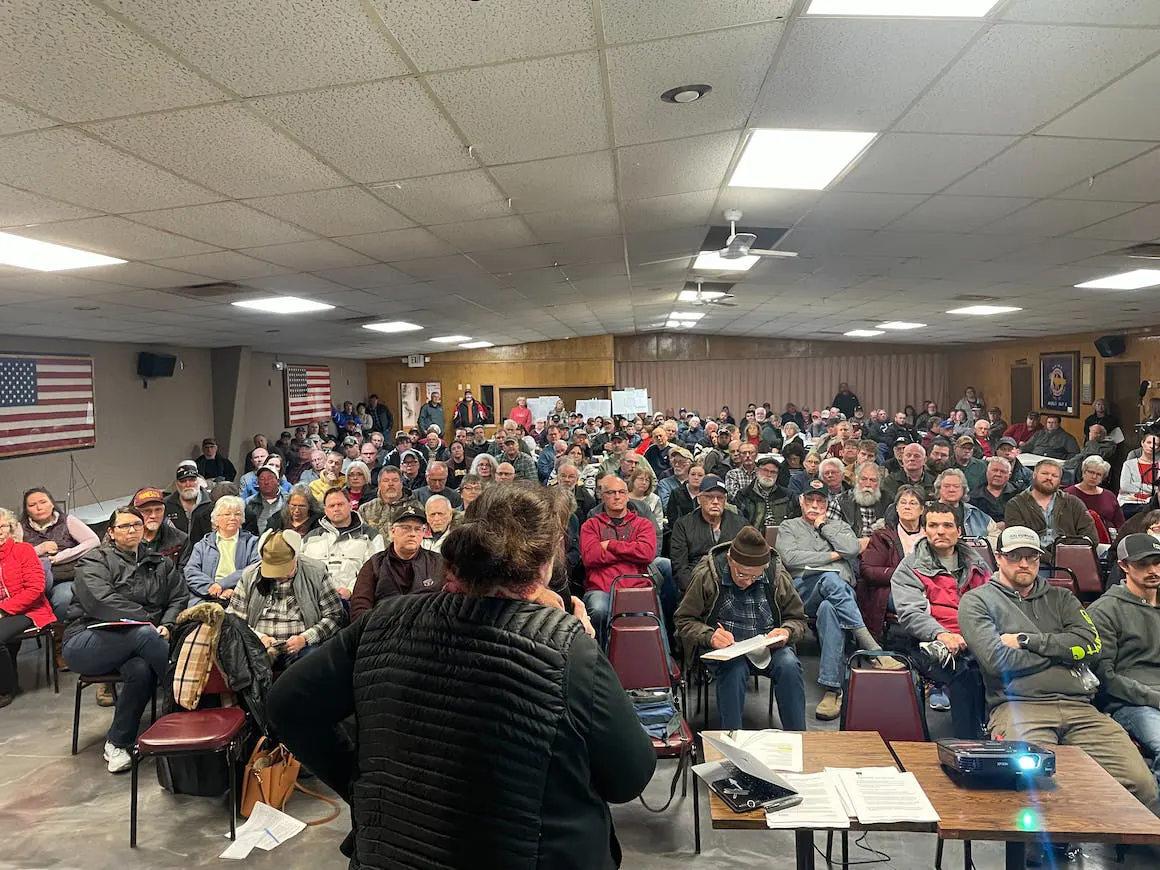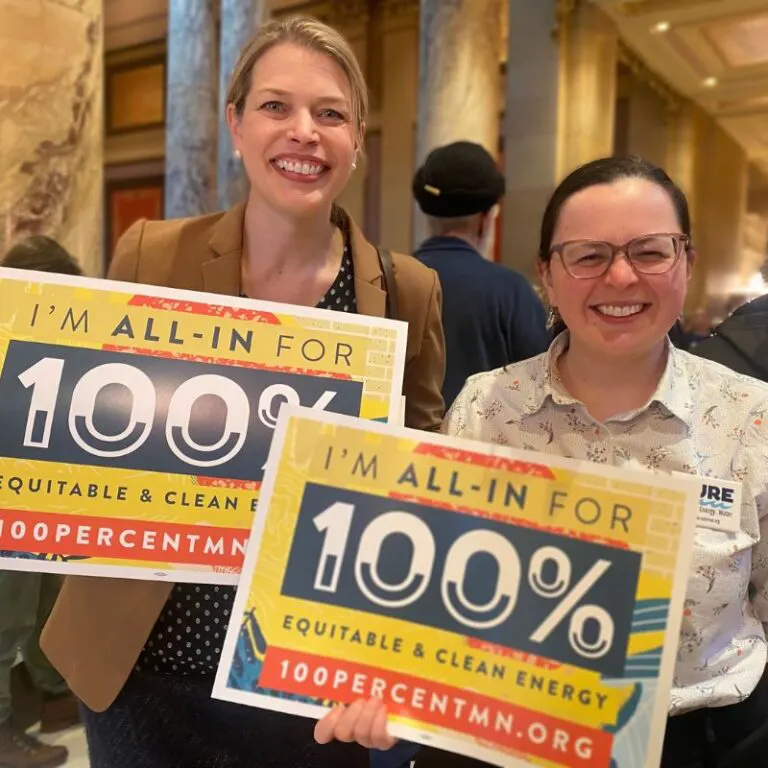CURE is fighting for a bright rural future and against false climate solutions on the ground in our rural Minnesota communities, through the media, and in the halls of power at the Minnesota Public Utilities Commission and in the legislature.
“The Biggest Energy story you don’t know about”
 CURE took to the pages of MinnPost to spread the word about “The Biggest Energy story you don’t know about” — Carbon Dioxide (CO2) pipelines and Carbon Capture Sequestration and Utilization (CCUS) projects. These pipelines are being sold by industry as a silver bullet for climate and an economic godsend for rural communities. News flash: They’re NOT. Instead, CCUS and CO2 pipelines let polluting industries keep polluting while making windfall profits from subsidized federal payments. Read more here.
CURE took to the pages of MinnPost to spread the word about “The Biggest Energy story you don’t know about” — Carbon Dioxide (CO2) pipelines and Carbon Capture Sequestration and Utilization (CCUS) projects. These pipelines are being sold by industry as a silver bullet for climate and an economic godsend for rural communities. News flash: They’re NOT. Instead, CCUS and CO2 pipelines let polluting industries keep polluting while making windfall profits from subsidized federal payments. Read more here.
(P.S. North Dakota regulators have readily admitted they need our CO2 for more Enhanced Oil Recovery — aka using CO2 to pump even more oil out of the ground & burn. Does that sound like a “climate solution” to you? Didn’t think so.)
At the Public Utilities Commission

In early January, the Minnesota Public Utilities Commission (PUC) held its hearing on Summit Carbon Solutions’ (Summit) route permit application for a branch of its proposed CO2 pipeline in Otter Tail and Wilkin Counties. The PUC decided that there should be a rigorous environmental review in the form of an Environmental Impact Statement (EIS), which CURE fought for. However, the PUC’s decision only covered the short section of the pipeline in Otter Tail and Wilkin Counties, calling the rest of the project “hypothetical.”
CURE disagrees with the assessment of the extensive CO2 pipeline network planned for Minnesota as hypothetical. According to Summit’s public comments over the past 20 months and public maps, nearly 240 miles of pipeline are planned for Minnesota crossing Chippewa, Cottonwood, Jackson, Kandiyohi, Martin, Otter Tail, Redwood, Renville, Wilkin, and Yellow Medicine counties.
In late February, CURE filed a petition of reconsideration, arguing that the PUC’s decision was legally and factually wrong and that they should increase the scope of the EIS to cover the entire 240-mile proposed CO2 pipeline route in Minnesota. The PUC will take up CURE’s petition at their meeting on March 30.
Read more about CURE and CO2 pipelines at the PUC—
- Minnesota group files appeal on Summit Carbon pipeline environmental review [AgWeek]
- Minnesota regulators vote to require environmental impact statement for CO2 pipeline [Star Tribune]
- PUC requires environmental review for first proposed carbon pipeline in Minnesota [Minnesota Public Radio]
- Summit Carbon pipeline on Minnesota PUC agenda; including scope of environmental review [Ag Week]
On the ground

Photo credit: Jennifer Bjorhus, StarTribune.
In late January, almost 200 landowners and community members gathered in Lamberton to share information and concerns about the CO2 pipelines. The meeting was covered by the StarTribune—
“This is a community issue, not just a private landowner issue, because it will affect all of us,” CURE director Peg Furshong told the crowd.
“Landowners are questioning the global warming benefits and safety of piping and sequestering carbon dioxide, as well as the terms of the easement agreements.”
There’s also distaste with how the land agents for Summit have dealt with landowners…
Frosting on a cow pie” is how one farmer from Wabasso, Minn., described the easement agreement Summit gave him.”
Read more—
- ‘Carbon Express’ pipeline runs into skepticism in Minnesota farm country [Star Tribune]
- Farmer, attorney promote carbon pipeline mitigation agreements [Marshall Independent]
At the Legislature
The first half of the 2023 Minnesota Legislative session is progressing at a breakneck pace, and CURE has been a constant presence at the Capitol, making sure that rural voices are front and center in the lawmaking process.
100% Clean Energy Act
 In early February, the 100% Clean Energy Act was signed into law, cementing Minnesota as a leader on climate and clean energy policy. This bill will save Minnesotans money, increase electric grid reliability, and create good rural jobs.
In early February, the 100% Clean Energy Act was signed into law, cementing Minnesota as a leader on climate and clean energy policy. This bill will save Minnesotans money, increase electric grid reliability, and create good rural jobs.
CURE was a core supporter of this bill because of its potential for our rural Minnesota communities and for the climate—but our work is not finished. Rural Minnesota must lead by example and advance what we know to be true: that our diverse communities and vibrant landscapes benefit from an affordable, reliable, and just energy future. And CURE will continue to work for real climate solutions that benefit all Minnesotans, not just corporate interests.
CURE also helped to expose the North Dakota Lignite Council as trying to derail the critical 100% clean energy legislation. This was in conjunction with research from the Energy Policy Institute spotlighting how millions of dollars have been spent by the North Dakota coal industry on targeting Minnesota lawmakers.
Frontline Communities Protection Act
CURE is also championing the Frontline Communities Protection Act (HF637/SF466), critical environmental justice legislation which will stop the Minnesota Pollution Control Agency from permitting new polluting facilities in over-burdened neighborhoods and towns if these facilities would make air and water pollution worse. It also gives people a genuine say in how decisions are made about the air they breathe and the water they drink. This is an issue that impacts communities across Minnesota, not just the metro.
More bills CURE is following and supporting—
- Minnesota State Competitiveness Fund (HF1656/SF1622) will “provide money to state, local and tribal governments — as well as to electric cooperatives and investor-owned utilities — for energy projects, including for renewable energy and bolstering the electric grid.” Read more.
- Minnesota Climate Innovation Finance Authority (MnCIFA) (HF2336/SF2301) will bridge financing gaps in clean energy and is run by the state government. Learn more about it from our partners at Minnesota Interfaith Power & Light.
- National Electric Vehicle Infrastructure (NEVI) Program authorization (HF1346/SF1132) will guarantee the state’s readiness to utilize the $68 million in federal funds efficiently. Along with granting MnDOT authorization to implement the NEVI Program, it is also essential to provide the necessary 20% state match to ensure that Minnesota can take full advantage of the program.
- Technical assistance funds + legislation (HF2406, HF2405, HF2499), a collection of bills that will fund technical assistance to help Minnesota communities, electric co-ops, and small utilities better access federal dollars from the Infrastructure Investment and Jobs Act (IIJA) and the Inflation Reduction Act (IRA – aka “the climate bill”).


